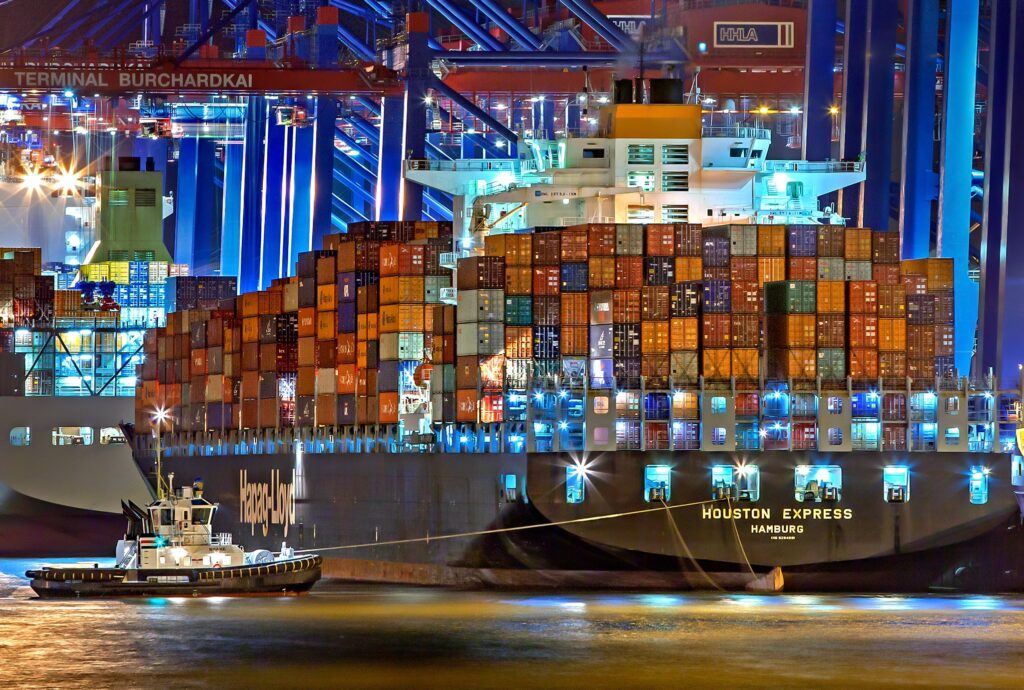In May 2023, the European Commission presented an ambitious legislative package for the reform of the Customs Union. Coming only ten years after the previous one, this reform is a response to a large increase in trade volumes, pushed by e-commerce, many new EU standards on imported goods, and other geopolitical shifts that impact international trade. Insofar as the Customs Union is crucial to the EU’s competitiveness and sustainability, the proposed reform stands on two major changes: a partnership with businesses for simpler customs procedures and improved risk management.
The Commission intends for the reform to be gradually implemented from 2028 and completely rolled out within 10-15 years. Currently, the legislative proposal is being negotiated by the European Parliament and the Council of the European Union, according to the ordinary legislative procedure.
Why now?
The challenges that the EU has faced since 2013 have led policy-makers to reform the way the Customs Union is governed. Brexit has changed the borders of the Union, the Covid-19 pandemic produced disruptions to global supply chains, and the Russian-Ukraine war has exposed the risks of import and energy dependence on Russia. Concurrently, trade has been used as a bargaining chip in international relations (e.g. Trump’s tariffs on Chinese imports).
Additionally, managing imports has become a more complicated task: on one hand, e-commerce has exploded in the EU, with one billion customs declarations per year, meaning a surge in prohibitions, restrictions, and standards on goods entering the Customs Union’s border.

The current weaknesses of the Customs Union stem from gaps in the application of customs legislation across MS, which are exploited by non-compliant manufacturers and sellers, potentially harming EU consumers and the environment, as well as the competitiveness of compliant manufacturers and sellers.
Overall, the Commission finds that EU customs should be modernized to be future-proof and efficient. Not doing so, it is argued, would threaten the EU with loss of revenues, fraud, and insufficient strategic independence.
What is the Commission’s proposal?
The Commission proposes a data-driven reform. Under the reformed Customs Union, traders, transporters, and operators will log their data of imports and exports directly on the EU Customs Data Hub. This single interface would replace the existing 111 IT systems in place and would form an information centre enabling communication between authorities and business, while providing an overview of individual supply chains and business activities.
Simpler procedures are also envisioned for a new category of trusted traders operating in the EU market. Even though “Trust & Check” traders will have to fulfil certain criteria, they will be able to import goods without any need for active customs intervention, and be allowed to self-assess their goods’ duties and compliance.

One key feature is the “deemed importer” rule for e-commerce platforms. This will be responsible for ensuring custom duties are paid at the time of purchase instead of consumers. The reform would eliminate the current threshold that exempts goods worth less than €150 from customs duty, which is heavily exploited by fraudsters. The reform suggests four categories to calculate the applicable import duties for low-value goods.
Finally, the Commission proposes a new EU Customs Authority to be endowed with capabilities that better manage EU financial and non-financial risk coming from trade. This new central entity would pool expertise and competences, assist coordination among MS, strengthen EU presence at the international level, and oversee the Data Hub.
Scale of impact
The reform seeks to reduce compliance costs for custom authorities, businesses, and partners and to better protect the financial interests of the MS and EU’s Single Market. It is foreseen that adopting the reform would save EU Member States up to EUR 2 billion per year in operating costs, and bring customs revenues of around EUR 1 billion per year. These aspects of the proposal are expected to allow private sector firms to cut compliance costs by EUR 2.7 billion per year.

The updates to the governance of the Customs Union are planned in tandem with the twin green and digital transitions. Indeed, under the proposed reform, customs, national authorities, and partner agencies of the EU would be able to access real-time information and intervene on any given consignment according to their risk analysis. This improved capacity to stop unsafe or non-compliant goods from entering the EU is intended, ultimately, to safeguard EU consumers and the environment.
Implications for EU Governments
The European Commission’s ambitious reform of the Customs Union carries several significant possible implications for EU governments. The following should be considered in the negotiations and next policy-making steps:
- Further integration: The proposed reform intends to pool competence and expertise in the EU Customs Authority. Though governments have already delegated legislative competence for this policy area, they would now be required to actively delegate tasks and integrate further into the customs union.
- Transition to Harmonized Data Hub: The shift from 111 existing IT systems to a single EU Customs Data Hub is a complex undertaking given the need both for a seamless transition, and the dismantling of outdated IT infrastructure, which would involve substantial coordination and resource requirements.
- Redistribution of responsibilities: The removal of IT systems within Member States and the centralization of data on the EU Customs Data Hub means EU governments need to assess the redistribution of roles and responsibilities. Ensuring that EU and national authorities maintain appropriate oversight and enforcement capabilities in this new framework is important.
- Training: Despite the cut in costs for stakeholders, a period of transition where staff at national and EU levels will need to acquire new skills related to data management, risks must appropriately be analyzed, and the new data hub deployed effectively in this regard.
- Criteria for Trust & Check Traders: EU governments must engage in negotiations and consensus-building to define apt criteria for “Trust & Check” traders. These should be stringent enough to manage risks effectively.
Implications for private sector firms
In light of these proposals, private sector firms may be impacted in the following ways:
- Evaluating customs duty changes: Firms will need to assess the ramifications of the abolished customs duty exemption and the introduction of new customs duty categories on their import operations. This involves conducting a comprehensive analysis to determine the impact on their import expenses, pricing strategies, optimization opportunities, and overall cost structure.
- Sourcing and supply chains: These changes could necessitate supply chain adjustments. Firms must evaluate how shifts in customs duties may influence sourcing decisions and production processes. This might involve exploring alternative suppliers or markets to mitigate the potential impact of different customs duties.
- Utilizing the “Trust & Check” category: Firms should assess whether they meet the criteria for the “Trust & Check” category; this involves examining their compliance history, financial stability, and adherence to customs regulations. Adherence can enhance operational efficiency and save on administrative expenses.
- Adapting data systems: Firms may need to adapt their internal processes to ensure that record-keeping systems are compatible with the Data Hub. They should also create a well-structured transition plan that outlines necessary changes, all while providing data accuracy, consistency, and reliability.
In sum, the EU Customs Union reform is a crucial opportunity for EU governments to adapt to changing trade dynamics, improve economic efficiency, and enhance EU competitiveness. However, EU member states should be aware that transitioning to the new Customs Union will require domestic adjustments. This transition should be weighed against the benefits of streamlined procedures and improved fraud prevention through EU-level risk management. Private sector firms can also benefit from simplified customs requirements and reduced compliance costs. All may still engage in the policy-making process since the reform proposal is open to amendments before approval by the European Parliament and the Council.

